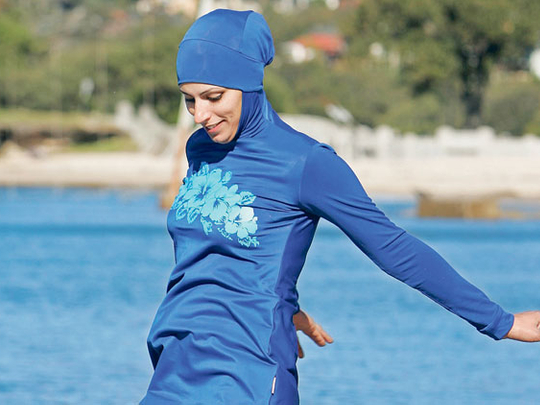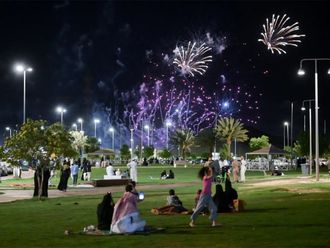
Alanya, Turkey: Muslim women can often be seen swimming while veiled — though they may not want to on beaches where most women are wearing bikinis.
The problem also occurs in some resorts in Muslim countries with an international tourist trade. Expensive hotels in some Arab countries actually ban veiled women from their pools so that Western guests feel at home. One answer for Muslim families who want to play in the water together is halal tourism.
The idea took off several years ago, as hotel companies witnessed the success of the Sharia-compliant banking and investment sector and saw their opportunity. It encompasses the main aspects of Sharia-compliant living such as alcohol abstinence, halal food, separate mosques for prayer and modest dressing. And with nearly 1.6 billion Muslims in the world, the potential market is huge.
Missing out
Mizan Raja, his wife Nazma Begum and their four children travelled this summer from the UK to Alanya, on Turkey's southern, Mediterranean coast, for a beach holiday. They had been to British resorts before — such as Brighton and Southend-on-Sea — but Nazma could only watch while the others played. "I really thought I was missing out to be honest, like I was held back from doing something that was really fun and enjoyable. But here, everybody has been getting involved and having lots of fun," she said. A remarkable thing about the women-only pool area is how relaxed the women look. Most of the women in the hotel were covered. They either wore a headscarf (hijab) or full-face veil (niqab).
In the ladies' pool, however, none of the women were covered, and some were wearing regular swimming costumes.
On the beach I met Thuraya Al Haj Mustafa, a Palestinian-German who has been coming to Turkey with her family for the past five years. "What I enjoy myself is being able to go to the beach with my whole family, not just my husband, to go to the sea. I can go as well. I can swim with my children," she said. With countries like Turkey, Malaysia and Indonesia leading the way in halal tourism, the Middle East has yet to exploit this young, growing market.
Dubai-based Almulla Hospitality, for example, recently unveiled plans for a Sharia-compliant brand, comprising 30 hotels, targeting Saudi Arabia, the United Arab Emirates, Jordan, Egypt and Malaysia.
Handful
By 2013, Almulla wants to have 150 properties worldwide, including 35 in Europe, and plans to spend over $2 billion (Dh7.34 billion) to reach its goal but there has been no news of its development. Only a handful of Sharia or halal hotel developments have so far materialised in the region — yet the World Tourism Organisation says Gulf travellers spend $12 billion annually on leisure travel.
Abdul Sahib Al Shakiry, an Iraqi tourism expert and founder of Islamic Tourism Magazine, said that a good chunk of this money could be channelled into the halal tourism industry. "People want to spend money and if you give them what they want, they'll spend money in this direction and there will be business," he said.
But while some welcome the arrival of the Islamic beach holiday, others see it as a form of isolationism.
Whether or not halal tourism drives people apart, or brings them together, one thing is for sure — Mizan, Nazma and their children had a fantastic time on this beach holiday.
The writer is a reporter for BBC World News travel show fast:track
Have you ever used one of these packages? Do you think you would enjoy one of these vacations? Would you consider going on one?












